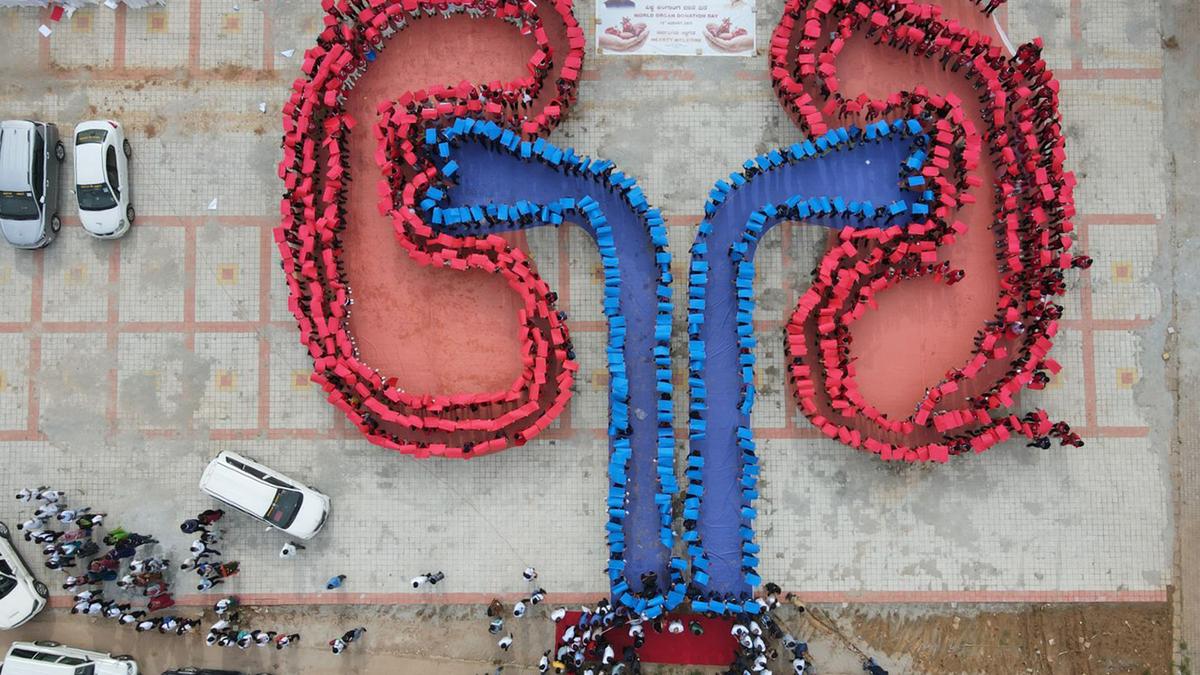Now Reading: Kidney Sale Scandal Unfolds in Tamil Nadu
-
01
Kidney Sale Scandal Unfolds in Tamil Nadu
Kidney Sale Scandal Unfolds in Tamil Nadu

Fast Summary
- Incident overview: L. Manikandan, a 36-year-old construction worker from Namakkal, Tamil Nadu, sold his kidney for ₹4.5 lakh to repay debts but was left with lasting health issues.
- Organ Trade Network: Manikandan is part of an ongoing investigation into a widespread illegal kidney trade that targets economically disadvantaged individuals through middlemen and brokers.
- Hospital Involvement: Two private hospitals in Tamil Nadu have had their transplant licenses suspended for irregularities tied to the illegal organ trade – Dhanalakshmi Srinivasan Medical College (Perambalur) and Cethar hospital (Tiruchi).
- Broader Context: Over decades, Tamil Nadu has seen recurring instances of commercial kidney donations tied to poverty and debt, including large-scale cases in Chennai post-tsunami (2007).
- Legal Loopholes: Experts highlight issues within the Transplantation of Human Organs and Tissues Act (THOTA), notably Section 9(3), which allows non-relative donations based on “affection,” often abused in commercial trafficking schemes.
- Regulatory Failures: Lack of regular inspections, undefined roles within oversight committees, and absence of autonomous donor advocates exacerbates malpractice risks.
- Impact on Donors: Studies show donors often face declining income and worsening health after nephrectomy without long-term economic benefits.
Image caption: Namakkal district under scrutiny for illegal organ trade. Health officials conducting investigations at Pallipalayam.
Indian Opinion Analysis
The recurring issue of organ trafficking underscores systemic vulnerabilities within India’s healthcare regulation framework. The exploitation of marginalized communities like powerloom workers highlights how debt traps perpetuate cycles where human organs become commodities. While legal provisions like THOTA aim to regulate transplants ethically, loopholes surrounding non-relative donations serve as entry points for unscrupulous practices-undermining accountability between hospitals and authorization committees.
Tamil Nadu’s dual system-successfully managing deceased donor programmes while struggling with transparency in living donor transplants-shows room for policy refinement. Mandating routine audits by licensing authorities could deter illegal operations while safeguarding ethical medical practices.
Lastly, this incident should encourage broader discourse on socioeconomic reforms tackling endemic poverty-the root cause driving individuals toward such desperate decisions-which no healthcare provision alone can resolve comprehensively.Read more*: Source
























